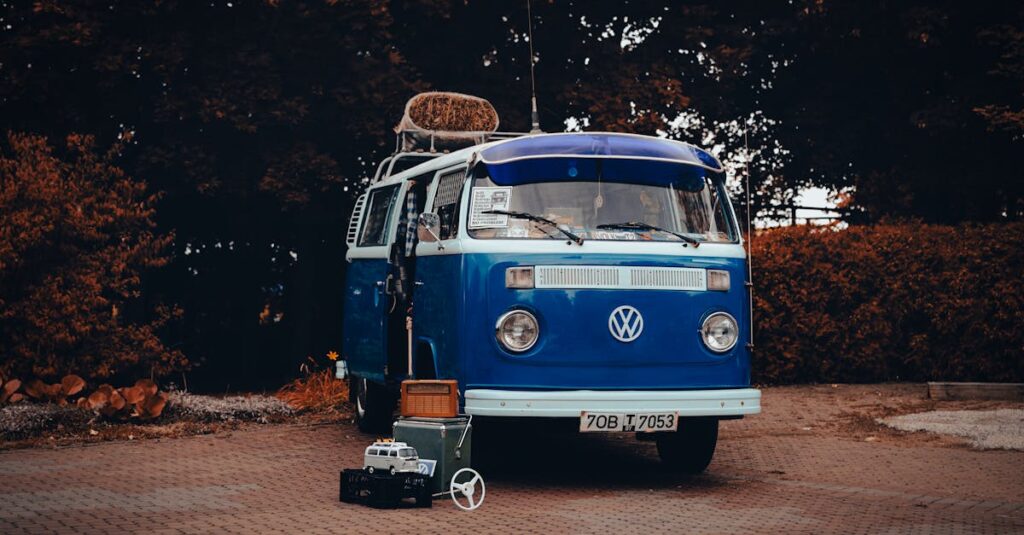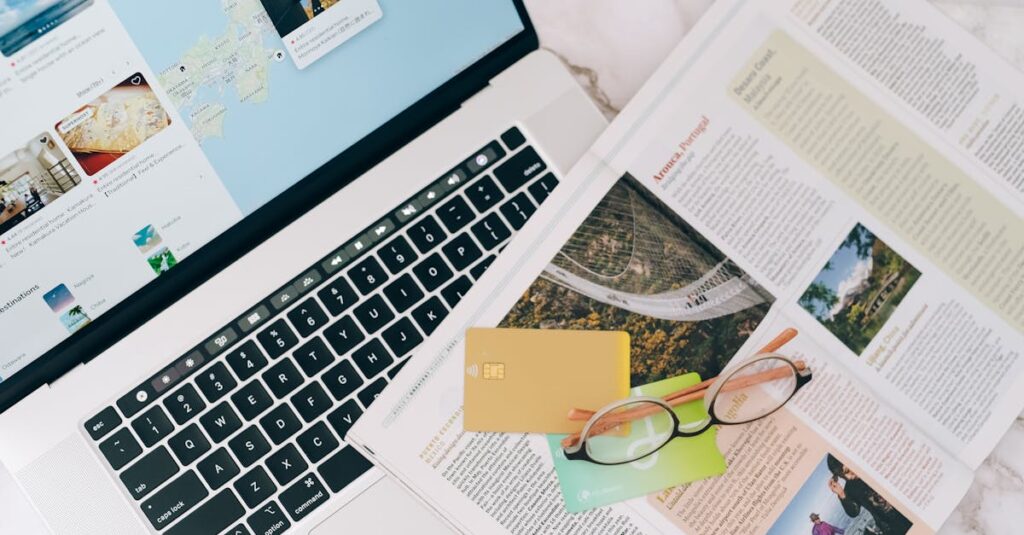Europe is a treasure trove of culture, history, and breathtaking landscapes, making it a top destination for travelers. With its diverse countries and unique experiences, exploring Europe can be both exciting and overwhelming. Knowing a few essential travel tips can make all the difference in creating unforgettable memories.
From navigating public transportation to understanding local customs, these practical insights will help travelers maximize their adventures. Whether it’s indulging in authentic cuisine or discovering hidden gems off the beaten path, being prepared ensures a smoother journey. With the right approach, anyone can experience the magic of Europe without the stress.
Travel Tips For Europe
Travelers should prioritize researching public transportation options before arrival. Major cities in Europe often feature extensive subway systems, trams, and buses. Purchasing a multi-day transportation pass often saves money for frequent trips.
Travelers should learn a few basic phrases in the local languages. Simple greetings and polite expressions foster goodwill with locals. Even minimal effort demonstrates respect for the culture.
Travelers should consider booking accommodations in advance. Popular areas fill up quickly, especially during peak seasons. Reservations ensure a desired location and often offer better rates.
Travelers should familiarize themselves with European currency. Most countries use the Euro, while others maintain their own currency. Having local cash on hand facilitates purchases in smaller establishments.
Travelers should observe local customs and etiquette. Social norms may differ significantly among countries; understanding these can enhance interactions. For instance, tipping practices and dining etiquette vary.
Travelers should maintain awareness of safety tips. Keeping valuables secure and being cautious in crowded areas reduces the risk of theft. Registering with a home country’s embassy provides an extra layer of security while overseas.
Travel tips for europe should indulge in local cuisine. Exploring traditional dishes offers an authentic taste of each country’s culture. Street food markets and local restaurants frequently provide unique experiences at lower costs.
Travelers should pack smartly for varying climates. Weather conditions differ across regions and seasons. Layering clothing allows adaptability to changing temperatures throughout the day.
Travelers should download essential apps and maps before departure. Offline maps assist in navigation without relying on data connections. Transportation apps can streamline commuting in unfamiliar cities.
Travelers should pay attention to travel insurance. Opting for comprehensive coverage offers protection against cancellations, medical emergencies, and lost belongings. Insurance grants peace of mind during the trip.
Planning Your Trip
Planning a trip to Europe involves careful consideration and preparation. Key factors can significantly influence the travel experience.
Choosing The Right Time To Visit
Choosing the right time to visit can enhance the travel experience. Peak tourist seasons in Europe typically fall between June and August, leading to higher prices and larger crowds. For milder weather and fewer tourists, consider traveling during the shoulder seasons, such as April to May or September to October. Winter offers unique experiences in cities like Vienna and Prague with festive markets and fewer crowds, making it another appealing option for travelers.
Creating A Flexible Itinerary
Creating a flexible itinerary allows for spontaneity while ensuring major sites are covered. Prioritize must-see attractions and allocate extra time for unexpected discoveries. Include buffer time between activities to accommodate delays or personal interests. Using a mix of planned and spontaneous experiences fosters a rich exploration of European culture and lifestyles. Keeping track of important information, such as local event calendars and weather forecasts, helps adjust plans as needed.
Packing For Europe
Packing effectively for a trip to Europe streamlines the travel experience and enhances comfort. Consider essential items to ensure readiness for diverse climates and situations.
Clothing Essentials For Different Climates
Selecting the right clothing is vital for comfort during travels.
- Pack layers for fluctuating temperatures. Include lightweight shirts, sweaters, and jackets that can be added or removed.
- Include versatile pieces. Choose neutral colors that mix and match easily, allowing for various outfit combinations without overpacking.
- Don’t forget comfortable footwear. Opt for sturdy walking shoes suitable for exploring urban environments.
- Choose weather-appropriate items. Research destinations ahead to pack accordingly, ensuring protection against rain or cold in specific regions.
- Incorporate accessories. Scarves or hats provide additional warmth while enhancing outfits and can be easily packed.
Useful Gadgets And Accessories
Bringing the right gadgets and accessories enhances the travel experience and keeps travelers connected.
- Include a universal travel tips for europe adapter. This device accommodates different plug types found throughout Europe.
- Carry a portable charger. It ensures devices remain powered during long excursions or while exploring remote areas.
- Bring noise-canceling headphones. These provide comfort during flights or train rides, reducing distractions and enhancing relaxation.
- Utilize compression packing cubes. These keep clothing organized and maximize suitcase space, making packing and unpacking more efficient.
- Consider a travel-sized first aid kit. It addresses minor injuries or ailments quickly, ensuring peace of mind on the go.
Navigating European Transportation
Navigating transportation across Europe requires familiarity with local systems to optimize travel experiences. Understanding public transport options and car rentals can significantly enhance mobility.
Understanding Public Transport Systems
European cities typically feature extensive public transport networks, including buses, trams, and trains. Familiarity with these systems enables efficient travel. Specific tips include:
- Researching Timetables: Check schedules online to avoid long waits. Many cities offer real-time tracking apps.
- Purchasing Passes: Consider multi-day passes for unlimited travel within a city. Cities like Paris and Berlin provide options that save money.
- Exploring Regional Trains: Utilize high-speed trains like Eurostar and Thalys for longer trips. These options reduce travel time between major cities.
- Utilizing Metro Maps: Study city metro maps for clear navigation. Apps, such as Citymapper, assist in finding optimal routes.
- Understanding Ticket Validity: Be aware of ticket validation requirements before boarding. Some regions require stamps before departure.
Tips For Renting A Car
Renting a car in Europe allows freedom to explore off-the-beaten-path locations. Adhering to the following tips ensures a smooth experience:
- Booking in Advance: Reserve a vehicle before arrival for better rates and availability. Utilize major rental companies for reliability.
- Examining Insurance Options: Review insurance policies to ensure adequate coverage. Many credit cards offer rental insurance options.
- Familiarizing with Local Laws: Understand driving regulations in each country. Speed limits, road signs, and alcohol limits can vary significantly.
- Considering Manual vs. Automatic: Manual cars dominate Europe; opt for an automatic if unfamiliar with driving stick.
- Using GPS or Maps: Employ GPS devices or map applications for navigation. Offline maps are beneficial in areas with weak signal.
By mastering public transport systems and implementing smart car rental strategies, travelers can effectively navigate Europe, ensuring a rewarding exploration of its diverse landscapes.
Cultural Considerations
Cultural considerations enhance the travel experience in Europe. Understanding local customs and social norms strengthens connections and fosters respect among different communities.
Learning Basic Local Phrases
Learning basic local phrases promotes effective communication. Knowing essential words and expressions, such as greetings and polite requests, can break the ice with locals. Examples include “hello” and “thank you” in multiple languages, like “bonjour” in French or “gracias” in Spanish. Using these phrases demonstrates appreciation for the local culture and encourages positive interactions. Travelers should also consider using language apps or phrasebooks for quick reference during their journey.
Understanding Dining Etiquette
Understanding dining etiquette is vital for an enjoyable meal experience. Customary practices differ across Europe, and recognizing specific traditions can enhance interactions. For instance, in France, maintaining a polite tone and using “s’il vous plaît” and “merci” is essential. In Italy, dining typically occurs later in the evening, and ordering specific courses like antipasti can reflect local customs. Tipping practices also vary; for example, in Germany, rounding up the bill suffices, while in Spain, a small tip may be welcomed. Awareness of these nuances enriches cultural experiences and demonstrates respect for local traditions.
Saving Money While Traveling
Travelers can maximize their budget while exploring Europe by employing strategic financial practices. Utilizing affordable options for accommodation and dining can significantly reduce overall expenses.
Budget Accommodation Options
Choosing budget accommodation options enhances savings. Consider the following choices:
- Hostels: Offer shared dormitory-style rooms at lower rates and often include communal kitchens.
- Guesthouses: Typically run by locals, these provide a cozy atmosphere and often include breakfast.
- Airbnb: Allows booking private rooms or entire apartments at competitive prices, often in local neighborhoods.
- Campsites: Available in many areas, campsites provide a low-cost way to stay amid nature, particularly in rural regions.
Travelers can also search for deals through comparison websites or off-peak rates, helping to find the best value.
Eating Well On A Budget
Eating well without overspending enhances the travel experience. Key strategies include:
- Local Markets: Visiting farmers’ markets for fresh produce and local specialties at lower prices encourages cultural immersion.
- Street Food: Sampling street vendors offers both affordability and authenticity, with delicious regional options available at every corner.
- Meal Deals: Many restaurants offer lunch specials or early bird menus, providing substantial savings compared to regular dinner prices.
- Picnics: Grocery shopping and enjoying meals in parks or scenic spots reduce dining costs while immersing travelers in the local environment.
By implementing these strategies, travelers can enjoy their culinary experiences without financial strain.
Traveling through Europe
Traveling through Europe offers an unforgettable experience filled with rich culture and breathtaking sights. By embracing careful planning and remaining adaptable, travelers can navigate the continent’s diverse landscapes with ease. Packing wisely and understanding local customs can enhance the journey significantly.
Exploring hidden gems and indulging in authentic cuisine adds depth to any trip. With the right strategies in place travelers can not only save money but also create lasting memories. Whether it’s a bustling city or a quaint village each destination has something unique to offer. Embracing these travel tips will undoubtedly lead to a more enriching and enjoyable European adventure.



